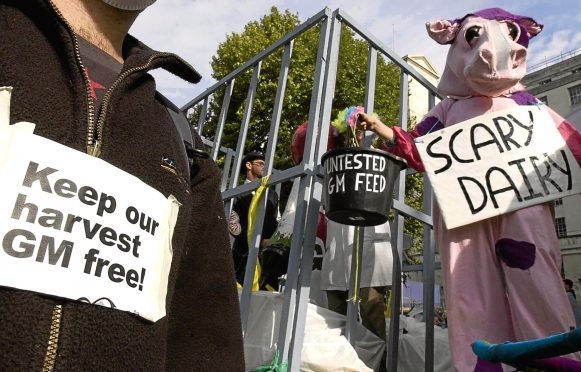Growing genetically modified (GM) crops in Scotland is unlikely to help farmers increase yields and produce more food, says the head of a leading crop research facility.
Achim Dobermann, chief executive of Rothamsted Research, said GM crop technology was useful for growing niche crops, but would not bring huge benefits to commercial crops.
And rather than hoping GM crops would get approval in the UK once the country left the EU, Professor Dobermann said producers would be better to focus on the way they farm to help them produce higher quality crops.
Speaking at the Bayer Youth Ag Summit in Brussels, Prof Dobermann said public perceptions of GM meant that getting the green light to use the technology in the UK was highly unlikely.
Instead it made more sense to focus efforts on new technologies which were less controversial – and potentially more beneficial to producers.“I don’t think GM is the major solution for agriculture. Ten years ago if you spoke to people like me we would have said that certain challenges require a GM solution,” he said.
“But we don’t need that any more, because we can do it with more advanced breeding technologies. The advancement of gene editing – which is a very different thing to GM – will change the whole picture.
“I’ve realised that despite the good things we can do with genetics, it’s about the business of agriculture. If we don’t know how to grow crops we just can’t get the results that are needed.”
